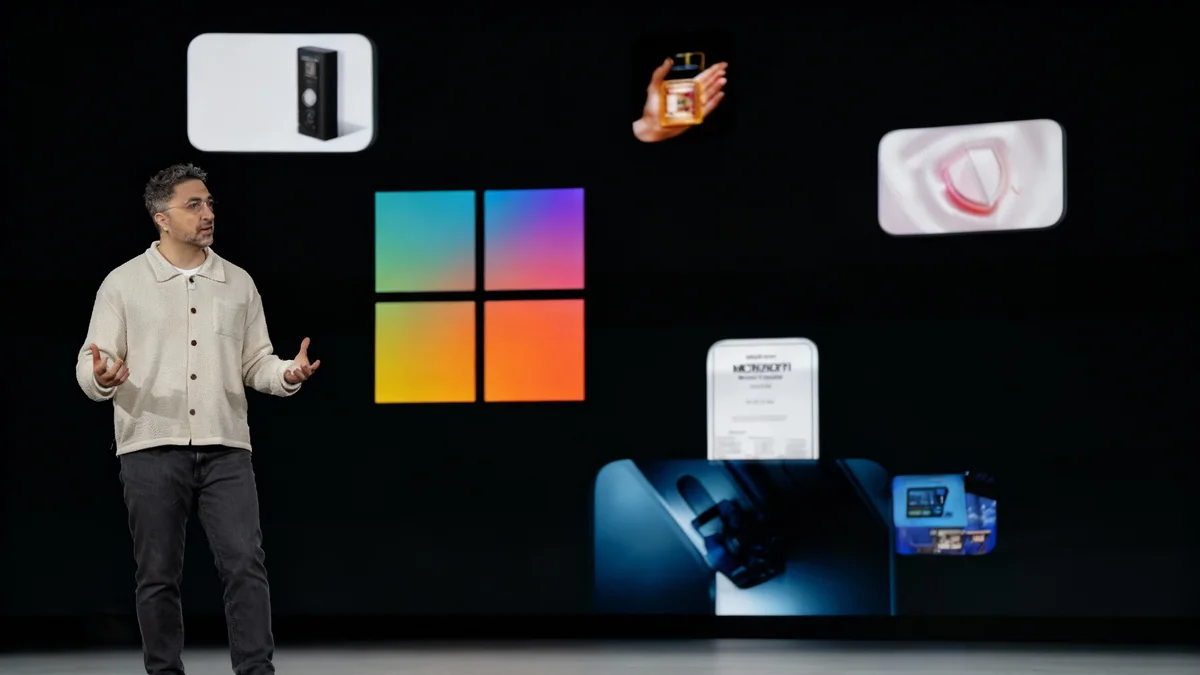Microsoft is taking a distinct path in the competitive artificial intelligence landscape, intentionally avoiding the development of chatbots capable of romantic, flirtatious, or erotic conversations. This strategic decision sets the company apart from some rivals who are exploring or already allow such interactions, even for adult users.
The company's AI CEO, Mustafa Suleyman, emphasized a commitment to creating AI tools that are emotionally intelligent, kind, and supportive, but most importantly, trustworthy and safe for all users, including children.
Key Takeaways
- Microsoft will not develop AI chatbots for romantic or erotic interactions.
- The company prioritizes trust and safety, aiming for AI that children can use.
- Copilot's strategy focuses on human connection and productivity tools.
- New features include group chats and improved health information from trusted sources.
- Microsoft aims to differentiate from competitors facing safety concerns.
A Focus on Trust and Safety
Microsoft's approach to AI development centers on building systems that are fundamentally trustworthy. Mustafa Suleyman, Microsoft's AI CEO, highlighted this vision, stating, “We are creating AIs that are emotionally intelligent, that are kind and supportive, but that are fundamentally trustworthy.” This perspective guides the company's decisions regarding the nature of its AI interactions.
The goal is to produce AI that parents would feel comfortable allowing their children to use. This means implementing clear boundaries and safety measures within their AI platforms. The company believes this commitment to safety will ultimately win over a broader audience in the rapidly evolving AI market.
AI User Stats
- Microsoft's Copilot has 100 million monthly active users across its platforms.
- OpenAI's ChatGPT has approximately 800 million monthly active users.
Differentiating in the AI Race
The tech industry is in a fierce competition to establish the leading AI tool. Microsoft's Copilot is a significant player, though its user base is currently smaller than some competitors. The company is betting that its principled approach to AI development will be a key differentiator.
Suleyman articulated this stance in a blog post earlier this year, writing, "We must build AI for people; not to be a digital person." This philosophy underscores Microsoft's reluctance to engage in areas that could blur the lines between human and artificial relationships, particularly those involving romantic or sexual content.
Avoiding Erotic Content
Unlike some of its rivals, Microsoft has drawn a clear line concerning romantic, flirtatious, and erotic content. Suleyman confirmed that this is not a path the company intends to pursue, even for adult users.
“That’s just not something that we will pursue,” Suleyman stated regarding erotic content in Microsoft’s AI.
This decision contrasts with other AI companies that are either allowing or planning to allow adult users to discuss erotica with their chatbots, often after implementing new safety protocols. Microsoft's stance suggests that a dedicated “young user” mode, as seen with some competitors, might not be necessary for its platforms if adult content is not available in the first place.
Industry Safety Concerns
Some AI competitors have faced lawsuits and public scrutiny over concerns about their chatbots engaging in inappropriate conversations, including sexual content, with accounts identifying as minors. These incidents have highlighted the complex challenges of ensuring user safety in AI environments.
Companies are working to implement safeguards like content restrictions, parental controls, and AI age estimation technology. However, the effectiveness of these systems is still under evaluation.
Enhancing Human Connection and Productivity
A core element of Microsoft's AI strategy is to encourage human-to-human interaction, rather than replacing it. This aligns with the company's long-standing focus on productivity tools designed to facilitate collaboration and communication in professional settings.
Recent updates to Copilot reflect this commitment. One notable new feature allows up to 32 people to join a shared chat with Copilot. This functionality is envisioned for scenarios like classmates collaborating on assignments or friends planning events, where Copilot can offer suggestions and support within a group dynamic.
Trusted Health Information
Copilot's health-related updates also prioritize responsible AI use. When users ask medical questions, the chatbot is designed to refer to medically trusted sources, such as Harvard Health. Furthermore, for certain queries, it can recommend nearby doctors, guiding users toward professional human expertise rather than attempting to provide direct medical advice.
This approach represents a significant departure from AI models that might encourage users to become deeply immersed in simulated realities. Suleyman described this as a “very significant tonal shift” compared to industry trends that lean towards creating isolated, parallel digital worlds, some of which include adult content.
New Copilot Features
- Ability to refer back to previous chat conversations.
- Engagement in group conversations with up to 32 participants.
- Improved responses to health questions, drawing on trusted medical sources.
- Optional “real talk” tone for more expressive interactions.
Microsoft's strategic direction emphasizes a responsible and boundary-aware AI. By focusing on productivity, trusted information, and facilitating human connections, the company aims to build an AI ecosystem that is both powerful and safe for a wide range of users.





